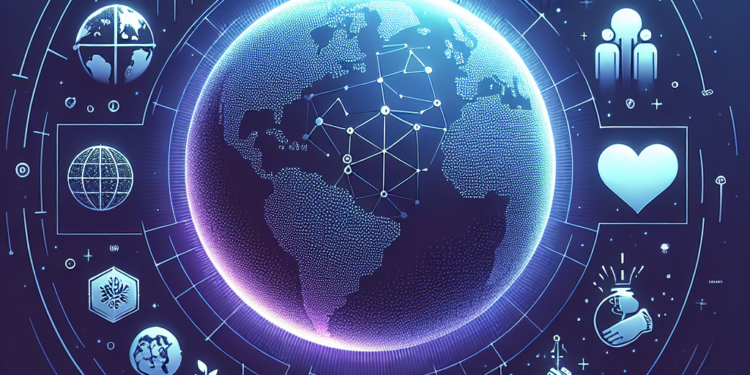In today’s data-driven world, the application of data science extends far beyond traditional business metrics and profit margins. A growing movement within the realm of data analytics is focused on leveraging these skills and insights for social good. This intersection of data science and social impact is not only innovating how we address pressing global challenges but also inspiring a new generation of data scientists to channel their expertise for humanitarian purposes.
Understanding Data Science for Social Good
Data Science for Social Good (DSSG) refers to the initiatives and projects that apply data analytics to tackle social issues such as poverty, healthcare, education, climate change, and social justice. By harnessing the power of big data, machine learning, and predictive analytics, organizations can gain insights that drive effective decision-making and impactful policy formulation.
Key Areas of Impact
-
Healthcare Improvements: Data science is revolutionizing healthcare delivery. Predictive analytics can identify outbreaks of diseases before they spread, helping public health officials allocate resources more effectively. For example, algorithms analyzing patterns in emergency room visits can predict flu outbreaks, enabling hospitals to prepare better for increased patient loads.
-
Education Access and Quality: By analyzing student performance data, educational institutions can identify at-risk students and implement targeted interventions. Data-driven approaches can enhance curriculum effectiveness, helping educators tailor their teaching strategies to improve student outcomes and reduce dropout rates.
-
Environmental Initiatives: Data science plays a crucial role in tackling climate change. Through data collection and analysis, scientists can model the impact of various environmental policies, optimizing resource allocation and identifying sustainable practices. This data-driven approach enables policymakers to create informed strategies that contribute to environmental conservation.
- Disaster Response and Recovery: In the face of natural disasters, data science can facilitate effective emergency response. By analyzing historical data and real-time information, organizations can predict which areas are likely to be affected, enabling quick resource mobilization and improving recovery efforts.
Collaboration and Community Engagement
One of the hallmarks of DSSG is its collaborative nature. Data scientists, nonprofit organizations, governments, and local communities often unite to address specific challenges. Initiatives like DataKind bring together pro bono data scientists and social organizations to work on meaningful projects that drive social change. These partnerships foster innovation, ensuring that the solutions are not only data-informed but also community-centered.
Challenges and Considerations
While the potential of data science for social good is vast, it is not without its challenges. Ethical considerations surrounding data privacy, bias, and the representation of marginalized groups are paramount. Data scientists must approach their work with a keen awareness of the social implications of their analyses, ensuring that they promote inclusivity and equity rather than exacerbate existing inequalities.
The Future of Data Science for Social Good
As technology continues to evolve, so too will the methodologies employed in the realm of DSSG. The integration of artificial intelligence and machine learning holds immense promise for developing more sophisticated models that can predict and respond to social issues with unprecedented accuracy.
Educational institutions are increasingly offering programs that blend data science with social impact, equipping the next generation of analysts with the skills needed to effect change. As awareness grows and more professionals enter this vital field, the potential for positive societal transformation becomes ever more significant.
In conclusion, Data Science for Social Good embodies the notion that data can be a powerful tool for social transformation. By harnessing analytics, communities can not only address immediate challenges but also build resilience for the future, paving the way for a more equitable and sustainable world.













